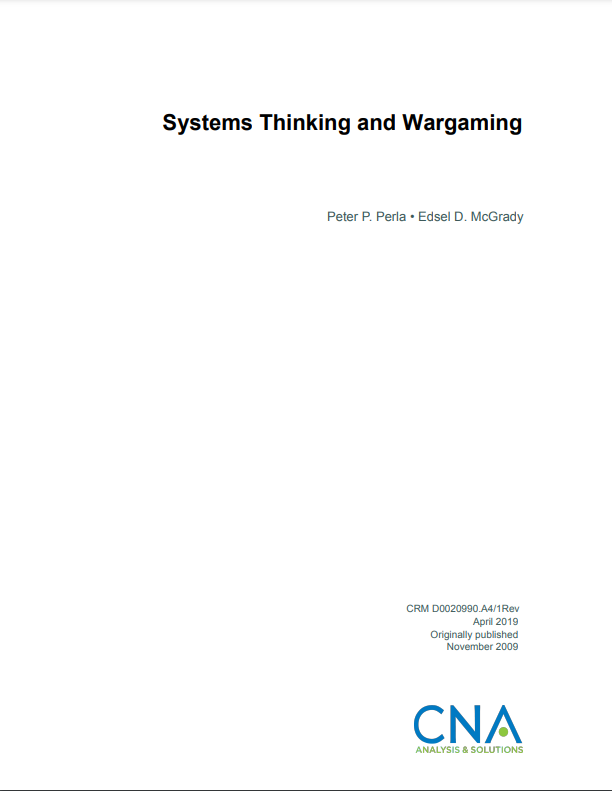Summary
Our research and analysis of this subject leads us to conclude that wargames and wargaming techniques can help those who develop systems thinking models of operational and strategic interest. Similarly, systems thinking techniques can help wargame designers construct better wargames and explore techniques related to social and political interactions among nations and groups.
This paper is intended to help analysts and wargamers understand systems thinking and how it relates to wargaming. Because many in our target audience have at least a basic grasp of the nature of wargaming, but less understanding of the nuances of systems thinking, the first half of the paper is in the form of an overview or tutorial about systems thinking and how to do it. We present several examples and some simple guidelines for how to apply systems thinking to building models of human organizations and processes. The remainder of the paper explores the relationships among systems thinking and wargaming in practical terms. It describes how systems thinking can be used to enhance game design and execution, largely by providing a framework and approach for identifying important processes that a game must represent. A game is inherently a dynamic system model in which the game’s players make decisions based on their pre-existing mental models, drawing on their internal experiences and understanding as well as both written and numerical databases.
In all but the simplest games, the goal is to examine not only player decision-making processes, but also the dynamic relationships between the various decisions players make. Understanding the dynamics of an interacting system can lead to the discovery of things that would not otherwise be revealed by a linear, prosaic, investigation of the topic. These “perversions” of the expected, which arise in games more frequently than in other forums, stem from several different feed forward and feedback loops, along with unspoken or unanticipated player actions. It is here that systems thinking models can provide unique support for gamers. By depicting clearly the interwoven network of relationships and interactions among complex elements of the environment, systems thinking models can provide wargamers a basis for structuring key elements of the game design and the game mechanics. Systems thinking models can also support both the players and controllers of a game during execution. Wargaming and systems thinking are thus a matched pair of techniques, which, when used together, can help advance the state of the art of operational and strategic planning and assessment.
*Originally published in November 2009, this paper was reprinted in April 2019.
Download reportCleared for public release; distribution unlimited. Specific authority: N00014-05-D-0500
Details
- Pages: 86
- Document Number: CRM D0020990.A4/1Rev
- Publication Date: 11/2/2009
